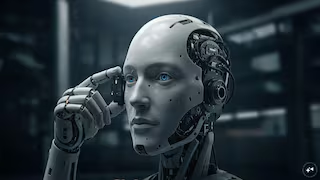Google DeepMind Chief Reveals When AGI Will Become 'Scary Good' For Humans

Demis Hassabis, CEO of Google DeepMind, artificial general intelligence (AGI) with cognitive capacities comparable to those of humans may be developed within five to ten years. He also claims AI will become powerful enough to battle and solve major diseases in the years to come.
However, the Nobel Prize-winning AI researcher, rejected the idea that modern AI systems are sentient. Additionally, he admitted that these AI technologies lack creativity. “They’re still the kind of, you can still think of them as the average of all the human knowledge that’s out there. That’s what they’ve learned. They still can’t yet go beyond asking a new novel question or a new novel conjecture or coming up with a new hypothesis that has not been thought of before," Hassabis stated in an interview with CBS News earlier this month.
“My advice would be to build intelligent tools first and then use them to help us advance neuroscience before we cross the threshold of thinking about things like self-awareness," Hassabis added.
He also claims that due to AI technologies accelerating medicine research, the end of the disease may be within ten years. “So on average, it takes, you know, 10 years and billions of dollars to design just one drug. We can maybe reduce that down from years to maybe months or maybe even weeks," he stated in the interview.
Additionally, he underlined that robotics is the way of the future for AI, which would eventually result in machines that can comprehend their surroundings. “I think it will have a breakthrough moment in the next couple of years where we’ll have demonstrations of maybe humanoid robots or other types of robots that can start doing useful things," he claimed.
Who Is Demis Hassabis?
Demis Hassabis holds a doctorate in neuroscience and works as a computer scientist. He attended Harvard, MIT, and Cambridge. Hassabis was a co-founder of DeepMind, an AI research centre that Google purchased in 2014.
Hassabis created AlphaFold, an AI model that can predict protein structure, in collaboration with John Jumper, another AI researcher. For this groundbreaking work, they were both granted the 2024 Nobel Prize in Chemistry. In the same year, Hassabis was also knighted by King Charles of the United Kingdom.
